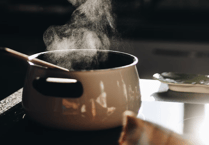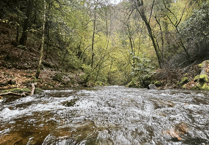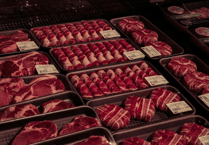SOUTH West Water has welcomed the Government’s decision to ban wet wipes containing plastic, recognising it as an important step in reducing sewer blockages and protecting rivers, seas, and wildlife.
The ban, which came into effect on Tuesday (November 18), prevents the sale and supply of wet wipes containing plastic, helping to tackle one of the main causes of sewer blockages which affects water companies across the UK.
The new legislation directly supports the aims of South West Water’s ‘Bin It, Don’t Block It’ campaign, which focuses on raising awareness and changing customer habits to reduce sewer blockages at their source.
Richard Price, Managing Director of Wastewater Services said: ‘We welcome the Government’s decision to ban wet wipes containing plastic – it’s a really important step forward towards reducing sewer blockages which in turn will help to further protect our rivers and seas.
‘Every year across Devon and Cornwall alone, we clear thousands of blockages caused by wet wipes and fats, oils and grease – around 7,000 in total.
‘This ban will help reduce the number of avoidable blockages that can lead to pollution, flooding and harm to wildlife.
‘However, even wipes that don’t contain plastic can still cause problems in our sewer network, so we continue to urge everyone to only flush the three Ps – pee, poo and paper.
‘We’d also like to see the ban extended further over time to cover all types of wet wipes and other unflushable products that contribute to blockages and environmental harm.
‘Clear labelling and stronger product standards are vital so customers know exactly what can and can’t go down the loo.
‘This is a positive step towards cleaner rivers, healthier seas and a more sustainable future for everyone’.
In 2024/25 South West Water cleared removed approximately 450 tonnes of waste from its network – with three-quarters caused by just two things: wet wipes and fats.
When fat, oil and grease combine in the sewer with items like wet wipes, sanitary products, and food waste that is flushed or poured down drains, it can form stubborn blockages.
If left unchecked, these can grow into giant, concrete-like fatbergs – the most extreme form of sewer blockage.
Fatbergs can cause flooding, unpleasant odours, pollution in rivers and seas, and costly damage to the sewer network.
That’s why South West Water is encouraging customers to make small changes at home and ‘Bin It, Don’t Block It’ to help keep sewers flowing and stop blockages before they start.
As part of the campaign, the company has shared some quick, easy tips to help people to make small changes at home to help prevent blocked drains.
- Only flush the 3 Ps down the loo: pee, poo, and paper. Put wipes, even so-called “flushable” ones, in the bin.
- Never pour fats, oils, or grease down the sink. Instead, collect your grease or oil in a homemade fat trap like a jar or tub and throw it in the bin once cooled.
- Put food scraps and coffee grounds in the bin or in a food caddy.
- Dry wipe dishes before washing them to reduce grease entering the drains.
For more information about Bin It Don’t Block It, visit https://www.southwestwater.co.uk/household/your-services/your-wastewater/bin-it-dont-block-it





Comments
This article has no comments yet. Be the first to leave a comment.